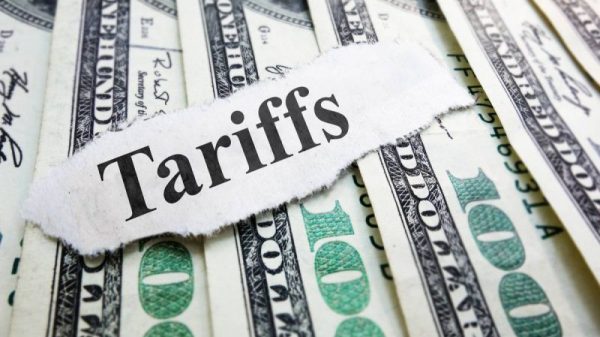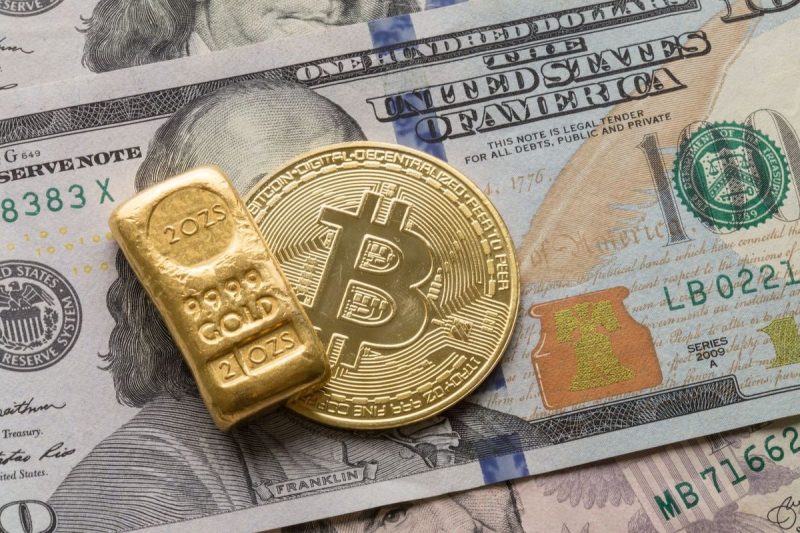The intrinsic value of gold, the fate of the US economy and Bitcoin’s potential were some of the most prominent points discussed at the 50th annual New Orleans Investment Conference, held from November 20 to 23.
Over the last five decades, market watchers, analysts, economists and investors have descended on the Big Easy in autumn to attend the popular investment event, and 2024 was no different.
This year’s edition of the New Orleans Investment Conference boasted an all-star lineup of the resource sector’s most well-known figures, including Rick Rule, Adrian Day, James Grant, Lobo Tiggre and Peter Schiff.
While presentations and panels touched on an array of topics, the three mentioned emerged as overarching themes.
1. Bright future for gold amid economic uncertainty
Opening the conference with welcome remarks and the first presentation was event host Lundin, who is also CEO and president of Jefferson Financial and editor of Gold Newsletter.
Called “The Generational Opportunity in Metals and Miners,” his presentation set the tone for the show.
Highlighting the discrepancy between the gold price and the performance of the gold equites, Lundin quipped, “You don’t have to be a genius to see the generational opportunity.”
He sees both gold and gold stocks going higher — the newsletter writer told attendees he expects the precious metal’s price to reach US$6,000 to US$8,000 per ounce by the end of the current cycle.
For now, however, it’s impossible to say when exactly that will happen.
Avi Gilburt, lead analyst and founder of Elliott Wave Trader, used his presentation to highlight gold’s potential, although he also warned it could be some time before it ascends to unprecedented highs.
Using a series of slides and charts, Gilburt explained that gold is currently in the final stages of a fifth-wave rally that began in 2016. He expects to see a multi-month pullback or consolidation period in 2025 before the start of a final parabolic move that could take the precious metal to the US$3,300 to US$3,400 range.
“I feel bad coming out here and saying this (because) I know a lot of people are looking for US$5,000 to US$7,000, even US$10,000,’ he said. ‘In this gold rally, I’m really not seeing that at this point in time.’
After that push higher, he expects an extended corrective period before the next major bull market.
Gold was the focal point of Day’s “The Ring of Truth: What Gold is Telling Us” presentation as well.
In front of an attentive crowd, the president and namesake of Adrian Day Asset Management emphasized gold’s role as a safe-haven asset, store of value and hedge against inflation, noting that the yellow metal was up 70 percent over the course of two years when it touched a high of US$2,790 at the end of October.
‘Gold is our protection. Gold is what I call the ‘ring of truth.’ It tells us about the state of the world, the health or fragility of the financial system, the health of the economy and the risk in the markets,’ said Day.
He then took aim at the US Federal Reserve, saying that inflation has not been “quashed” and is still well above the central bank’s target rate of 2 percent. “In the last four years, the dollar has lost — by the government’s own numbers — over 20 percent of (its) purchasing power. So is inflation vanquished?” he questioned.
More broadly, Day noted that global inflation is also above the targets set out by central banks.
“The Fed is no longer being believed, and the power of the Fed is being destroyed. This is a global phenomenon,” said Day. “Inflation — according to the International Monetary Fund — around the world is almost three times the arbitrary target set by central banks.”
2. The economy: Fiat’s final act?
The Fed and the state of the US economy were also themes in Lawrence Lepard’s presentation, “Fiat Delenda Est (Fiat Must Be Destroyed).” The investment manager at Equity Management Associates said the Fed’s decision to lower interest rates to 1 percent in the 2000s was a crime, as was subsequent quantitative easing.
“In my opinion, the great Keynesian experiment is ending,” said Lepard.
He went on to explain that John Maynard Keynes believed that government deficit spending could stimulate growth and ensure full employment by boosting economic confidence.
However, this idea is flawed, according to Lepard, who noted that Austrian economists have recognized for a long time that true prosperity comes from productivity and efficiency.
“What we need is productivity and efficiency, and the only way that you can get productivity and efficiency is by having money that has standards — that’s unimpeachable and can’t be diluted,” he said.
Lepard then underscored the fact that the US has accumulated more than US$11 trillion in debt since 2020. He also took aim at the incoming administration’s plans to cut government inefficiency.
“I’m as glad as anybody that Trump won,” he said. “But I hear he’s going to fix it. Elon’s going to fix it. Ramaswamy is going to fix it. It’s all going to be great. We’re going to cut US$2 trillion from the deficit. It’s a lie. It’s a myth.”
Similarly, James Lavish, managing partner at the Bitcoin Opportunity Fund, pointed to exorbitant debt and poor policy as underpinning factors to current economic activity.
“It’s not just the US — it’s a debt disease across the world. Any country that issues debt in its own currency will never hard default; rather (it will) soft default every single day through perpetual inflation, the phenomenon that’s primarily caused by the expansion of the money supply,’ he said during his presentation.
Lavish argued that the government is essentially in a debt spiral that can only be resolved through inflation, as the interest expense on the growing debt cannot be covered through other means.
‘The bottom line is, deficits lead to borrowing, lead to higher interest expense, lead to higher deficits, lead to more borrowing, (lead to) even higher deficits. This is called a debt spiral. We’re in it,’ he said.
‘There’s really no way out except one — that’s inflation.’
With that in mind, Lavish sees Bitcoin as a strategic asset that can help investors protect themselves against the inflation and debt issues in the US, as well as the global economy.
‘In short, Bitcoin is a deflationary asset that cannot be debased like fiat currencies,” he said. ‘This is why you often hear Bitcoin described as digital gold and a hedge against inflation.”
3. The case for Bitcoin alongside gold
Unlike previous years, speakers at this year’s New Orleans Investment Conference were surprisingly pro-Bitcoin.
Several, like Lavish, even gave promising presentations about the world’s first cryptocurrency.
Lepard also expressed optimism about Bitcoin, calling it a superior store of value compared to gold. He underscored Bitcoin’s fixed supply and lower stock-to-flow ratio as key strengths and future price drivers.
The investment manager went on to forecast that Bitcoin could reach a value of US$1.1 million within a decade, registering a 28 percent annual growth rate.
‘The amount of Bitcoin on the planet is fixed. And it’s the one commodity in the world where, when the price goes up and the supply doesn’t change, that’s really, really powerful,’ said Lepard. “This thing is going up forever.’
For Lepard, growing distrust in fiat currencies will drive people toward Bitcoin and gold. Despite Bitcoin’s current volatility, he urges long-term holding, expecting significant price appreciation as adoption rises.
Securities Disclosure: I, Georgia Williams, hold no direct investment interest in any company mentioned in this article.

























